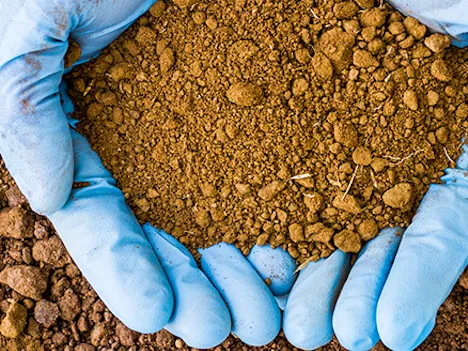This week’s PMA virtual town hall focused resource scarcity in food production. The panelists of this town hall were Dr. Jo Handelsman, who served as Science Advisor to President Obama, and is currently the Director of the Wisconsin Institute of Discovery at the University of Wisconsin, Madison; Dr. Wendy Graham, who is the Director of the Water Institute at the University of Florida Gainesville and whose research focused on integrated hydrologic modeling, groundwater resource evaluation and remediation, as well as the evaluation of the impact of climate variability and climate change on hydrologic systems, among others; and Dr. Rachel Melnick, who is the Senior Scientific Program Manager at the Agricultural and Food Systems Institute, and worked for the USDA for nearly a decade as a researcher and program manager, and who currently serves as editor for the Journal of Biological Control.

One size doesn’t fit all
One of the main recurring topics was that due to the diversity of the specialty crop industry, there is no single solution that could work for the majority of farms with regard to soil and water conservation. “Particularly for the produce industry as well as the floral industry, there is such a large diversity of crops that the one-size-fits-all approach will not work. The soil in which onions are grown in Arizona is so much different than that in which apples are grown in Pennsylvania. Approaching the issue as a one-size-fits-all type of situation is a silver bullet for the produce industry. So, one of the most important goals is to encourage researchers to look at more specific solutions,” says Dr. Melnick.
 Dr. Handelsman adds: “Certainly, the challenges with soil for produce production are greater than for other agricultural producers, and it is definitely something that we should be focusing on and worrying about. We are eroding our soil at about 10 to 100 times the rate at which it is produced, and there are already areas in the world where there isn’t much soil left.”
Dr. Handelsman adds: “Certainly, the challenges with soil for produce production are greater than for other agricultural producers, and it is definitely something that we should be focusing on and worrying about. We are eroding our soil at about 10 to 100 times the rate at which it is produced, and there are already areas in the world where there isn’t much soil left.”
Right: Dr. Handelsman.
 Cover crops: An important tool
Cover crops: An important tool
Each of the three panelists emphasized the importance of cover crops as a way of improving soil health. “Cover crops not only build carbon and protect from erosion, but they also reduce the nitrate leaching to the ground water,” says Dr. Graham. “They are a critical component for vegetable growing systems, because soil should never be left uncovered. This leaves it open to wind and water erosion,” Dr. Handelsman adds. “There really is no generalization that works except for that of cover crops,” Dr. Melnick says.
Right: Dr. Melnick.
 Using technology to improve resource scarcity
Using technology to improve resource scarcity
The improvement of technological resources has been something that has been beneficial for everyone in the industry, and this goes for the improvement of resource scarcity as well. “There has been a lot of activity in the research and development of inexpensive real-time ground-based censors. Mobile censors that are trailing a stream or a river, or even drone-mounted sensors which gather data to create hydrologic forecasting models to better manage crops, water, and nutrients in real time. There are a few large programs across the nation working on this, with the purpose of maximizing farm productivity, while minimizing waste and environmental impact using technology, data, artificial intelligence and modeling,” says Dr. Graham.
Right: Dr. Graham.
While there is a lot of research which has already contributed to the improvement of resource scarcity, a lot still remains to be done. To help progress the scientific research and its findings, the industry needs to be involved, the panelists agree on. “What we really need is for the industry to collaborate with us in the research projects,” says Dr. Graham. “Tell your senators and congresspeople about the ongoing research that is important to you so that they can help support it,” Dr. Handelsman says. “Growers should be engaged from the beginning, and when there’s research going on that focuses on something that they’re looking for, they should get actively involved in furthering this research,” Dr. Melnick concludes.
Next week’s virtual town hall will focus on research-based insights into the future of produce consumption and explore how these can shape culinary culture and spark new technologies that can influence the growth and consumption of produce.
